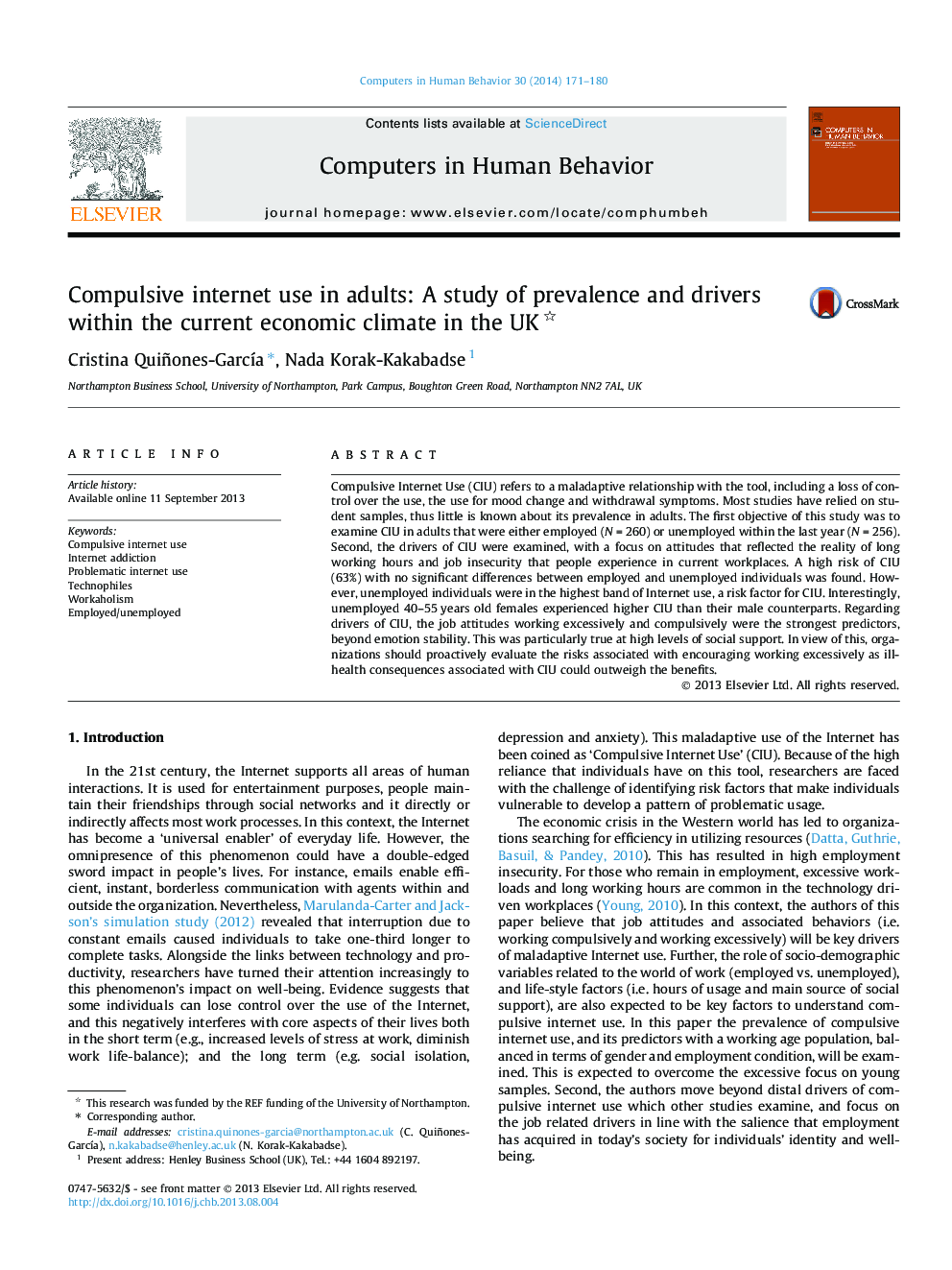| Article ID | Journal | Published Year | Pages | File Type |
|---|---|---|---|---|
| 350665 | Computers in Human Behavior | 2014 | 10 Pages |
•Of a British adult sample, 63% were classified as compulsive internet users.•Compulsive internet use was higher amongst unemployed middle age females.•Compulsive internet users rely less on non-virtual social support.•Workaholism is the strongest predictor of compulsive internet use.•High social support strengthens the link between workaholism and compulsive internet use.
Compulsive Internet Use (CIU) refers to a maladaptive relationship with the tool, including a loss of control over the use, the use for mood change and withdrawal symptoms. Most studies have relied on student samples, thus little is known about its prevalence in adults. The first objective of this study was to examine CIU in adults that were either employed (N = 260) or unemployed within the last year (N = 256). Second, the drivers of CIU were examined, with a focus on attitudes that reflected the reality of long working hours and job insecurity that people experience in current workplaces. A high risk of CIU (63%) with no significant differences between employed and unemployed individuals was found. However, unemployed individuals were in the highest band of Internet use, a risk factor for CIU. Interestingly, unemployed 40–55 years old females experienced higher CIU than their male counterparts. Regarding drivers of CIU, the job attitudes working excessively and compulsively were the strongest predictors, beyond emotion stability. This was particularly true at high levels of social support. In view of this, organizations should proactively evaluate the risks associated with encouraging working excessively as ill-health consequences associated with CIU could outweigh the benefits.
